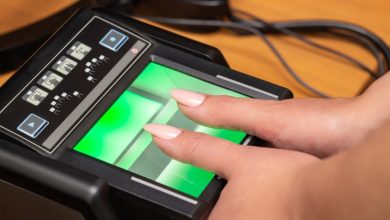Perils of using consumer apps for sensitive work communications

Consumer apps are designed to be user-friendly and accessible, making them an attractive option for quick, informal communication among colleagues. They allow instant messaging, group chats, and file sharing to facilitate collaboration and keep projects moving. Additionally, many employees are already comfortable using these apps in their personal lives, making the transition to using them for work seem natural.
Personal and professional communication
The primary risk of using consumer apps for work is blurring the lines between personal and professional communication. When the same app is used for both purposes, it becomes easier for sensitive work information to be accidentally shared with the wrong people. For example, an employee might inadvertently send a confidential document to a family member or friend instead of a colleague, potentially leading to a data breach.
Lack of organizational control and security
Consumer apps are not designed with the security needs of businesses in mind. Unlike enterprise-level communication platforms, consumer apps lack the robust security features and centralized control organizations require protecting sensitive data. This leaves companies vulnerable to data leaks, cyber-attacks, and compliance issues. When employees use consumer apps for work, the organization needs to gain control over who has access to sensitive information and how that information is shared. This can be particularly problematic when employees leave the company, as they may still have access to confidential data through these apps.
Compliance and legal concerns
How to send notes online? Many industries have specific regulations and compliance requirements regarding handling sensitive information. Using consumer apps for work communications puts companies at risk of violating these regulations, resulting in hefty fines and legal consequences. For example, healthcare organizations must adhere to HIPAA regulations, which mandate strict protection of patient data. Using consumer apps to discuss patient information could violate these regulations, as the apps may not provide the necessary level of security and privacy.
Lack of archiving and record-keeping
Consumer apps typically do not offer robust archiving and record-keeping features, which can be problematic for organizations that need to maintain accurate records of communications for legal, regulatory, or business purposes. With a centralized, searchable archive of work-related messages, companies can retrieve important information when needed, such as during an audit or legal dispute. At the same time, consumer apps seem like a convenient way to share notes and ideas with colleagues; safer and more secure alternatives are available.
- Secure file-sharing– These platforms provide encrypted file-sharing capabilities, protecting sensitive information.
- Access controls- Administrators set granular access controls, determining who views, edits, or shares specific notes and documents.
- Version history and collaboration– Some platforms allow multiple users to collaborate on notes in real-time, with version history tracking to ensure accountability and facilitate auditing.
- Integration with other tools-Enterprise communication platforms often integrate with other business tools, such as project management software or customer relationship management systems, allowing for seamless sharing of notes and information across the organization.
Organizations must prioritize employee education and establish clear policies around acceptable communication methods to mitigate the risks of using consumer apps for work. Employees should be trained on the potential dangers of using consumer apps for sensitive work messages and provided with approved secure alternatives.




